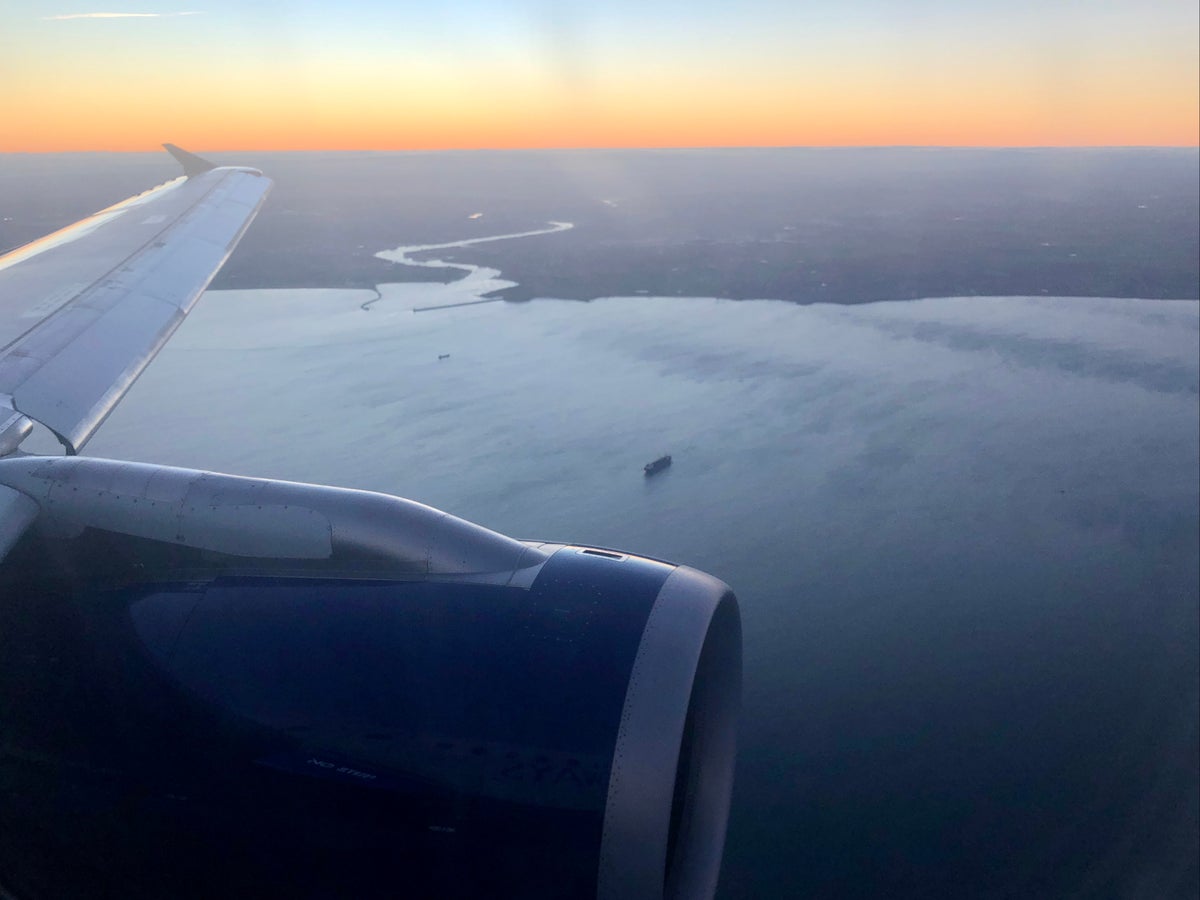
How long does it take to fly from Newcastle to London Heathrow? Not just the time in the air, but the actual “block time” – the schedule that is published by airlines such as British Airways. As a reminder, this is the time between the start of pushback at the departure airport and the moment the plane reaches the arrival gate and the handbrake goes on.
Bizarrely, on a day such as Monday when five BA departures are scheduled on the route, five different durations are used for the journey from the Tyne to the Thames – from 1h10m to 1h30m at five-minute intervals.
They stack up like this (in order of departure time):
- 6.50am: 1h25
- 9.40am: 1h30
- 12.15pm: 1h20
- 4.50pm: 1h15
- 7.40pm: 1h10
How did that turn out? I shall reveal all, but first let’s have a stab at estimating the duration. Newcastle is a compact airport that is rarely troubled by congestion, so I shall estimate seven minutes elapsing from the tug pushing back the Airbus and the wheels leaving the ground.
The direct airport-to-airport distance to Heathrow is 251 miles. But what with climb and descent manoeuvring, and the routing required by air-traffic controllers – typically flying over Manchester and Birmingham rather than the direct route over York and Sheffield – let’s call it 300 miles.
The cruising speed of the Airbus A320 series aircraft used for the run is around 515mph – but the plane will be able to achieve this speed only briefly, so I shall conveniently assume 300mph is the average during the flight. Which means exactly an hour in flight.
Mostly, arrivals at Heathrow touch down on a westbound heading. Conveniently for British Airways, that means aircraft destined for Terminal 5 are pointing in the right direction (the mammoth terminal is at the western end of the airfield). Allowing for a landing on the southern runway but parking on one of the north-facing gates, let’s call that eight minutes. Ladies and gentlemen, I hereby declare the block time for a Newcastle-London flight to be 1h15m.
Which, indeed, is one of the durations allotted by British Airways for its flights on Monday. But there are reasons why they should all be different. The slowest journeys are on the early pair, whose arrival at Heathrow is most likely to be delayed by all the other incoming traffic.
By lunchtime the chances of hold-ups have eased. During the afternoon and evening arrivals gradually thin out, and by the time the final flight of the day is due to land (8.50pm) the chances of having to hold are low. So 70 minutes is a fair call.
This is how they actually performed on the day. All of them beat the block time.
- 6.50am: 1h12 (–13m)
- 9.40am: 1h20 (–10m)
- 12.15pm: 1h07 (–13m)
- 4.50pm: 1h10 (–5m)
- 7.40pm: 1h01 (–9m)
The average turns out to be exactly 1h10 – the fastest block time scheduled.
Why would an airline overstate how long its flights actually take? Well, Monday was a relatively benign day in terms of weather. Heathrow is still well down on its normal rate of arrivals and departures, so there is less likelihood to need to “hold”; the second flight of the day did a circuit over leafy Buckinghamshire, burning up fuel while offering views of Chesham to passengers on the right, which explains why it took longest.
British Airways, like other carriers, really wants its operations to be as brisk as possible. If a flight scheduled to take 90 minutes routinely only took 70, then passengers (and hence BA) would be needlessly missing out on some of the potential connections on offer. But understating flight times has a bigger downside. Newcastle-Heathrow mostly carries connecting passengers: anyone who wants to get from the Tyne Bridge to the Thames can do so comfortably and stresslessly in three hours on one of the frequent fast trains (strikes permitting).
So BA’s Newcastle operation is all about the transfer traffic. If a passenger and/or their baggage misses a connection, the financial cost to British Airways mounts up as fast as the frustration to the traveller: on through tickets where the first stage of the journey goes wrong, onward flights must be re-booked and a hotel room might be needed.
As with many aspects of the airline business, the carrier makes an educated guess – and then hopes for the best. As it turned out, the first four arrivals all reached the gate a few minutes ahead of schedule.
But the final flight, although the fastest, was almost an hour late – giving transfer passengers to Cape Town, due out at 10.15pm, a tricky connection to achieve. Instead of 85 minutes between flights, they had barely half-an-hour. I hope they made it.







